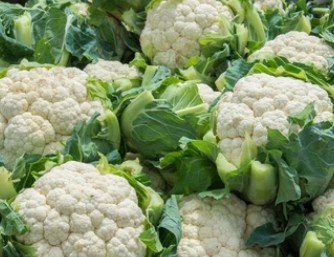Brassica oleracea var. botrytis L., also known as cauliflower, is a genus of Brassica in the cruciferous family. Cauliflower is a vegetable that is widely grown around the world and has high food value. Cauliflower contains vitamin A, vitamin B complex, niacin, vitamin C, protein, fat, carbohydrates, minerals, and beta-carotene, in addition to the anti-cancer substances quercetone, glutathione, indole, and isothiocyanate. Based on this, cauliflower has the effect of enhancing body metabolism, promoting detoxification, lowering blood sugar, lowering blood fat, and preventing cancer. To further improve the nutritional and industrial value of cauliflower, and reduce the cost of the cultivation process, genetic engineering breeding is increasingly utilized. Most of the genetic modifications are aimed at improving disease resistance, insect resistance, herbicide resistance, salt tolerance, cold tolerance, and storage tolerance of cauliflower.

Lifeasible has established a cauliflower genetic transformation platform based on a well-established and standardized experimental process, which can provide customized and efficient transgenic cauliflower breeding services to our customers. Our versatile cauliflower genetic transformation platform is based on the Agrobacterium transformation method. In short, the entire process is carried out by experts by inducing embryonic tissue and co-culturing it with Agrobacterium, followed by stem and root regeneration to form complete cauliflower transgenic plants. To suit your various needs, we have a range of different types of Agrobacterium strains, including LBA4404, GV3101, EHA105, AGL1, C58, and GV2260. Our various genetic modification services are shown below.

Customers can provide constructed cauliflower transformation vectors directly, and Lifeasible also offers vector construction services.
| Concentration | Volume | Other requirements |
| 80-100 ng/μL | ≥10 μL | no degradation & no contamination |
| Bacterial broth | Bacterial plate |
| Bacterial broth up to 1-year-old, preserved in glycerol | Bacterial plate activated within one week |
*For special varieties and customized services, the experiment time and the number of seeds needed may be increased. For this, please contact our staff for more information.
*Plasmids, E. coli, and Agrobacterium require cryopreservation and mailing under dry ice to avoid degradation, inactivation, and impact on experimental results.
*The strains, vectors, and receptor materials used in the experiment can be saved for free for half a year for customers, and you can pick them up at any time if you need them.
All of our experimental operations and procedures are open to our customers so you can contact us at any time to follow up on the progress of your experiment. Our staff will also proactively report the results of your experiments to you at different stages of the experiment's progress. Our one-stop service aims to simplify your project research as much as possible, thus saving you time and costs for more important studies. All you need to do is submit your cauliflower samples as required and communicate your needs clearly to our experts, then leave the rest to us in trust.
Lifeasible's experts have comprehensive knowledge and years of experience in solving technical problems and challenges in Brassica oleracea var. botrytis L. transformation. We can provide customized solutions to help you study a wide range of cauliflower varieties. Our services guarantee the success of your project. For more information or any inquiry needs, please feel free to contact us.